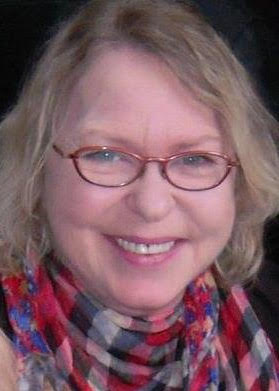
This week’s featured writer is Catherine Whitney, a New York nonfiction author who has co-written and ghostwritten more than fifty books in a variety of fields, including biography, memoir, history, politics, criminal justice, economics, women’s issues, health and medicine, parenting, and business. She coauthored Jane Pauley’s Your Life Calling; GMA’s Robin Roberts’ From the Heart: 7 Rules to Live By; Gretchen Carlson’s Be Fierce: End Harassment and Take Your Power Back; Shirley Sherrod’s The Courage to Hope: How I Stood Up to the Politics of Fear; Mike Giorgione’s Inside Camp David; John Burris’s Blue vs. Black: Let’s End the Conflict Between Cops and Minorities; Lee Iacocca’s Where Have All the Leaders Gone?; Jean Case’s Be Fearless: Five Principles for a Life of Breakthroughs and Purpose; Maria Bartiromo’s The Weekend That Changed Wall Street; Bret Baier’s Three Days in January: Dwight Eisenhower’s Final Mission; Judge Judy’s Beauty Fades, Dumb is Forever, along with her “What Would Judy Say?” series; Donny Deutsch’s The Big Idea; and Nine and Counting: The Women of the United States Senate, with nine women senators. Whitney specializes in a collaborative process that facilitates the “voice” and message of the author involved. She has also written her own critically acclaimed books,The Calling: A Year in the Life of an Order of Nuns;The Women of Windsor: Their Power, Privilege and Passions; and Soldiers Once: My Brother and the Lost Dreams of America’s Veterans. She can be reached at catherinewhitney@mac.com.
Tell us about your writing journey. How did you begin writing, and how did you break into the industry? When did you know you could make a career out of it?
I had always been a writer, but I fell in love with ghostwriting when I had an opportunity to work with Harold Rothwax, a well-known New York City criminal court judge on his book, Guilty: The Collapse of Criminal Justice. Harold was a stern, no-nonsense judge, whose nickname among defense attorneys and ADAs was “the Prince of Darkness.” One of his most famous cases was the Joel Steinberg murder trial. Harold, who rode a bike to work into his sixties, had been hit by a car on his way to court early in the trial, and he presided with both arms in casts. When I first met with him, I was intimidated by his forbidding manner. I didn’t think I had a prayer. But Harold gave me a sharp look and said, “It’s a good thing you’re so ignorant. You’re just what I need because you’re a blank slate.” Not exactly the most glowing review, but I think he was right. We had a wonderful collaboration, and in the process of writing the book I received an incomparable education in the criminal justice system, even sitting next to Harold on the bench and attending his classes at Columbia School of Law. After that experience, I was hooked on ghostwriting. I saw it as my ticket to inhabit other lives, to get deep inside worlds I never could have experienced on my own. Ghostwriting has offered me an entrée into so many arenas—a judge’s bench, a hospital surgery, a public official’s daily interactions, a president’s inner world, a celebrity’s persona behind the mask, a lawyer’s fight against police brutality, an activist’s search for change, an elderly business icon’s final words of wisdom, and so much more.
Over the years, when people were perplexed by my choice of career and wondered, “Don’t you want to write your own books?” I realized that they had a narrow view of what it meant to be a writer. In fact, I have written several of my own books, but ghostwriting/collaborating is my true calling.
What special considerations are required for collaborating on a book?
When I was imagining my writing career, I always thought I’d come up with ideas and then write about them. But with ghostwriting the ideas are usually not my own. So how do I choose which collaborations are right for me? The easy answer is to choose topics that have a personal resonance, but I’ve stretched that definition in ways that have enriched my experiences.
Early in my career I was approached to work with an auto industry expert on a book about General Motors. It seemed an unlikely fit. If you were to ask me the make and model of my car I’d have to pause for a few seconds to think about it. I just wasn’t into cars. But I took on the project and it became one of my favorites. It also led to a second book on the international auto industry, and later a chance to work with Lee Iacocca on his book about leadership—Where Have All the Leaders Gone? The key: recognizing that every story is a human story, and human stories involve drama. Once you find the humanity and unleash the drama in a topic, it can become your personal passion. The best nonfiction writers do just that, even with topics that might seem dry at first glance.
How do you know if an idea—yours or someone else’s—is strong enough to develop into a book?
Almost any topic can be book-worthy, but not every idea makes the cut. There are many ways to judge that, but here are a couple keys for me.
One of the biggest tipoffs is whether or not the person wanting to write the book has the ability to be reflective. Anyone can describe events, but what makes a book work is what goes on beneath the surface—the motivations and inner lives of the subjects, or the special insight that makes the treatment stand out. I once considered writing a book with a woman who was a former “mafia wife.” Her stories were billed by her agent as entertaining and hair-raising, and I guess they were. But in our conversation, the woman was unable to explain herself—to consider the consequences of her own complicity, see the damage that she enabled, or even describe how she felt about it. She was unable to reflect on her place in the story. I declined to pursue the project.
On the other hand, personal insight is not enough. A good book will add to the larger conversation. After I worked on a bestselling book about sexual harassment, several women contacted me wanting to write books about their own experiences. I encouraged them because writing about one’s experiences is often very productive. But I also told them that adding their voices to the ongoing conversation was probably not enough to inspire commercial interest. To do that they needed to enlarge the conversation in some way. I would ask them the same questions an acquisitions editor would ask about the special nature of their story, the fresh perspective they bring to the topic, the potential market, their public and social media presence, and so on.
What does your writing routine look like? How do you stay productive and overcome blocks?
Early morning is my sweet spot—before the emails and texts and phone calls start. A shot of caffeine in a dim room, with the sun rising outside over the Hudson River.
But basically, my model is to write every day, whether or not there is an urgent deadline. It’s like working a muscle. And in between, I do as much reading as I can—memoirs, biographies, general nonfiction, novels, crime stories. Other writers inspire me. For example, how can one read the poignant prose of Louise Penny’s A Better Man and not be driven to reach into the depths and be better oneself?
If I get stuck in the process of writing, or in the sheer grind of it, I turn to practical tasks, like research, reviewing tape transcripts or proofreading. I fill notebooks with doodles or do yoga.
Ordinary days are different from deadline days. When a deadline looms, the adrenaline kicks in, and I guess I like that mode the best. Although I can be a procrastinator, I’m obsessed with being on time. That’s my old Catholic school training kicking in.
What makes a successful ghostwriter?
The most important quality a ghostwriter can possess is curiosity, followed by empathy. In some ways, it’s like being a good long-form journalist. If you’re going to be a ghostwriter, immerse yourself in the experience. Love it. Engage in it. Most of all, understand it. There is a lot of confusion about the role of a ghostwriter. You’re not there to be the most brilliant wordsmith in the world but to listen—really listen—and to come as close as you can to channeling the person you’re working with. It’s never about what you want to say.
That doesn’t mean you’re a potted plant. I once worked with a woman who described me on her book tour as her “transcriber.” It made me laugh, because ghostwriting is so much more than transcribing tapes. In the intimate setting of a project, we insinuate ourselves, the way a director does.
An editor once told me that she thought my being the eldest daughter of nine children was good training for being a ghostwriter. She meant being a little bossy, a good organizer, and the ability to go with the flow. There are many moments of angst in the process of writing a book. To be successful you have to practice being unflappable. And cheerful, coaxing, interested. It’s not something you can fake.
What are you working on next?
I’ve just finished a delightful three-book series focusing on presidents Eisenhower, Reagan and FDR. (Thanks, Dan.) Now I’m working on a political memoir and a racial justice project. I feel privileged every day to do this work.
Do you have a great book idea? Pitch your idea to us below, and we’ll match you with a writer like Catherine who can bring your vision to life.



